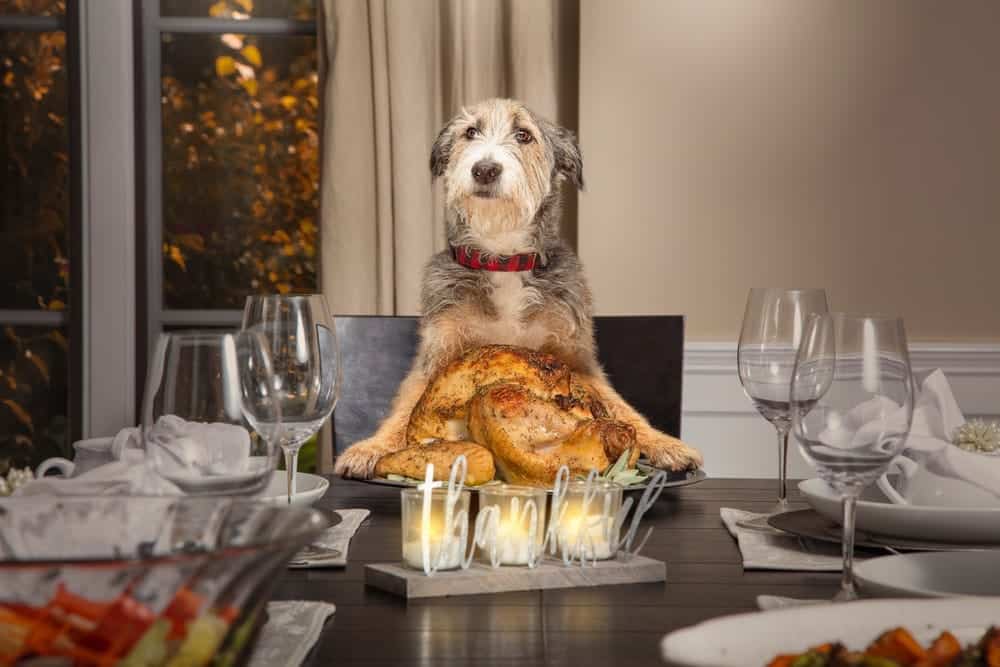When my Beagle-Lab mix, Max, eyed the Thanksgiving turkey, I checked with my Seattle-based vet, Dr. Emily Carter. She confirmed plain, cooked turkey is safe for dogs in moderation, but skin, bones, and seasonings are dangerous. From tiny Chihuahuas to sturdy German Shepherds, here’s my guide, blending my experience with Max and Dr. Carter’s expertise, to help dog owners feed turkey safely and keep their pups healthy.
Can Dogs Eat Turkey?
Yes, plain, cooked, boneless, skinless turkey is safe for dogs in small amounts, says Dr. Carter. It’s a lean protein source, but avoid skin, bones, or seasoned preparations. Max gets a small piece as a rare treat [1].
Do Dogs Like the Taste of Turkey?
Dr. Carter says most dogs, like Max, love turkey’s savory flavor. Some picky Pugs may turn it down, but Max drools over a tiny bite, especially around holidays [2].
Nutritional Value of Turkey for Dogs
Dr. Carter says skinless turkey breast (e.g., Butterball, available at Whole Foods, ~100g) provides:
- Calories: ~135 kcal, moderate for treats.
- Protein: ~30g, supports muscle growth.
- Fat: ~1g (white meat), low for weight control.
- Vitamins: B2 (riboflavin,
0.2mg, energy), B3 (10mg, metabolism), B6 (~0.5mg, protein synthesis). - Minerals: Phosphorus (
200mg, bones), selenium (25μg, immunity), potassium (~250mg, muscles).
Turkey isn’t uniquely “quickly absorbed”; it’s comparable to chicken. Max gets most nutrients from kibble (e.g., Blue Buffalo, available at Petco) [3].
Health Benefits of Turkey for Dogs
Dr. Carter highlights benefits for Max:
- Muscle Growth: Protein supports development in Beagles.
- Bone Health: Phosphorus aids joints in German Shepherds.
- Immunity: Selenium supports health in Labs.
Claims about preventing cancer or osteoarthritis lack canine evidence. Riboflavin doesn’t directly prevent bladder stones. Max’s energy stays high with occasional turkey [1].
Potential Hazards Associated with Turkey for Dogs
Dr. Carter warns of risks for Max:
- Pancreatitis: Fatty skin or greasy turkey risks inflammation in Pugs.
- Toxicity: Garlic or onions in seasonings cause anemia in Yorkies.
- Choking/Obstruction: Cooked bones splinter, risking injury in Chihuahuas.
- Allergies: Rare, but itching or rashes may occur in Border Collies.
Max had mild diarrhea once from sneaking fatty skin [2].
Possible Side Effects of Turkey on Dogs
Dr. Carter lists side effects:
- Digestive Upset: Fatty or seasoned turkey causes vomiting in Labs.
- Bone Injuries: Splinters may cause choking or intestinal damage in Beagles.
- Allergies: Rare skin reactions in Pugs.
- Weight Gain: Excess fat risks obesity in Golden Retrievers.
Max tolerates plain turkey well [3].
Allergic Reaction to Turkey in Dogs
Dr. Carter says turkey allergies are rare but possible:
- Itching, rashes, or hair loss (seen in Chihuahuas).
- Vomiting or diarrhea (rare in Beagles).
I tested Max with a small piece, no issues [1].
Dogs with Diabetes and Turkey
Dr. Carter says plain turkey is low-carb (~0g/100g), safe for diabetic dogs (e.g., Labs) in moderation. Monitor blood sugar, as dietary changes affect insulin. Max’s diabetic friend, a Beagle, gets a small bite biweekly [2].
Can Dogs Eat Turkey Gravy?
No, gravy often contains garlic, onions, or excess fat, toxic to dogs, says Dr. Carter. It risks upset in Pugs. Max skips it [3].
Can Dogs Eat Turkey Pepperoni?
No, turkey pepperoni (e.g., Hormel) is high in salt and spices, risking sodium toxicity in Chihuahuas, says Dr. Carter. Plain turkey is safer. Max avoids it [1].
Can Dogs Eat Turkey Giblets?
Yes, cooked giblets (e.g., heart, liver) are safe in moderation, says Dr. Carter. They’re nutrient-rich but high in fat, so limit for Labs. Max loves boiled giblets [2].
Can Dogs Eat Turkey Skin?
No, turkey skin is fatty and may cause pancreatitis or upset in Yorkies, says Dr. Carter. Max gets skinless meat only [3].
Can Dogs Eat a Turkey Sandwich?
No, sandwiches often include toxic ingredients (e.g., onions, mayo), says Dr. Carter. Plain turkey alone is safer. Max gets just the meat [1].
Can Dogs Eat Turkey Bones?
No, cooked turkey bones splinter, risking choking or intestinal damage in Beagles, says Dr. Carter. Raw bones are also risky. Max avoids all bones [2].
Can Dogs Eat Turkey Bacon?
Yes, plain turkey bacon is safe in tiny amounts, says Dr. Carter, but commercial versions (e.g., Oscar Mayer) are high in sodium. Max gets a rare sliver [3].
Can Dogs Eat Turkey Neck?
Yes, raw turkey necks are safe for some dogs (e.g., German Shepherds) if supervised, says Dr. Carter, providing protein and calcium. Avoid cooked necks due to splintering. Max chews raw necks under watch [1].
How to Feed Turkey to Your Dog
Dr. Carter’s tips for Max:
- Plain and Cooked: Boil or bake (20–30 min at 350°F) skinless, boneless turkey.
- No Seasonings: Avoid garlic, onions, or butter.
- Small Pieces: 1/4-inch for Pugs, 1-inch for German Shepherds.
- Fresh Only: Ensure no spoilage; refrigerate leftovers.
Max loves turkey mixed with his kibble [2].
How Much Turkey Should a Dog Eat?
Dr. Carter’s guidelines (10% of daily calories, 1–2 times weekly):
- Small Dogs (e.g., Chihuahua, 5–10 lbs): 1 tbsp (~15g).
- Medium Dogs (e.g., Beagle, 15–39 lbs): 2 tbsp (~30g, Max’s limit).
- Large Dogs (e.g., German Shepherd, 40+ lbs): 1/4 cup (~50g).
Divide into 2 servings to avoid upset [3].
Turkey-Based Recipes for Dog Treats
Dr. Carter suggests simple recipes over complex ones like “Turkey Oatmeal Dog Treat” to avoid overfeeding. Try this:
- Turkey & Pumpkin Bites (makes 12 small treats, ~1-day serving for a 20-lb dog):
- 1/4 cup cooked, minced turkey (e.g., Butterball, skinless).
- 1/4 cup canned pumpkin (e.g., Libby’s, plain).
- 1/4 cup oats (e.g., Quaker).
- Preparation:
- Mince turkey, mix with pumpkin and oats. Form 1-inch balls. Bake at 350°F for 15 min. Serve 1–2 treats/day, per size.
- Notes: Safe for Labs. Store in fridge, use within 5 days.
Max goes nuts for these chewy treats [1].
FAQs
- Can Dogs Eat Turkey Gravy? No, due to toxic ingredients.
- Can Dogs Eat Turkey Giblets? Yes, cooked and in moderation.
- Can Dogs Eat Turkey Skin? No, it’s too fatty.
- Can Dogs Eat Turkey Bones? No, they risk injury.
- Can Dogs Eat Turkey Neck? Yes, raw and supervised.
Key Takeaways
- Turkey Is Safe: Plain, cooked, boneless, skinless, in moderation.
- Avoid Risks: No skin, bones, or seasonings.
- Monitor Reactions: Watch for allergies or upset.
- Vet Approval: Consult for dietary needs.
Final Thoughts
Max’s turkey obsession is now a safe treat routine, thanks to Dr. Carter’s advice: plain, cooked turkey in small doses. Dog owners can find turkey at stores like Whole Foods and use these tips for any breed, from Pomeranians to Mastiffs. Keep it simple, watch for reactions, and consult your vet for a happy, healthy pup!
References:
[1] PetMD, “Meats Safe for Dogs”.
[2] AKC, “Healthy Dog Treats”.
[3] AVMA, “Pet Nutrition and Safe Foods”.



